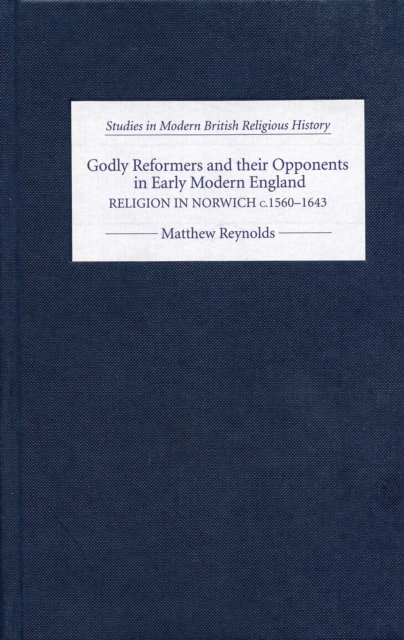
Godly Reformers and their Opponents in Early Modern England : Religion in Norwich, c.1560-1643 PDF
by Matthew Reynolds
Part of the Studies in Modern British Religious History series
Description
Close examination of the divided religious life of Norwich in the late sixteenth and early seventeenth centuries, with wider implications for the country as a whole.
This book traces the emergence of religious factionalism within an urban community, from Elizabeth's reign until the outbreak of the English Civil War, focusing upon early modern England's second city, Norwich, but placing it in the context of England as a whole. Typically, Tudor and Stuart Norwich has been viewed as a centre of radical puritanism, but through careful study of its rich municipal archive as well as hitherto untapped diocesan and parochial material, the author offers a more rounded account of Norwich's religious life, which considers the appearance of groups at odds with the godly. The first section explores how and why the Reformation flourished in Norwich. Later chapters address the fortunes of the city's puritan movement in relation to successive anti-Calvinist bishops - notably Samuel Harsnett and Matthew Wren - and their local allies [both clerical and lay] during the 1620s and 30s. Reacting to godly complaint, Norwich's anti-puritan tradition evolved into something approaching 'civic Laudianism' in borough affairs under Charles I.
Information
-
Download - Immediately Available
- Format:PDF
- Pages:326 pages
- Publisher:Boydell & Brewer Ltd
- Publication Date:25/08/2005
- Category:
- ISBN:9781846153983
Information
-
Download - Immediately Available
- Format:PDF
- Pages:326 pages
- Publisher:Boydell & Brewer Ltd
- Publication Date:25/08/2005
- Category:
- ISBN:9781846153983










